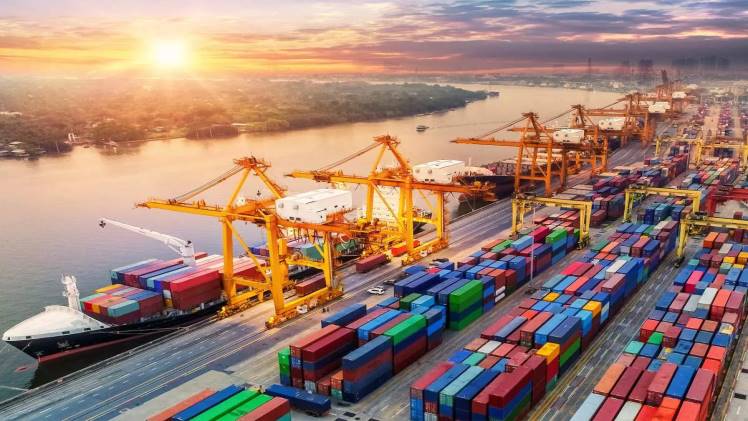Exploring the Impact of Global Trade Agreements on Freight Forwarding

Every day, countless products move from one part of the globe to another, facilitated by the intricacies of international trade. It is a bustling sector, with the logistics industry contributing around 9% to global GDP, according to the World Bank. The International Federation of Freight Forwarders Associations (FIATA) adds that the number of freight forwarders worldwide is growing at a robust pace, with the global freight forwarding market predicted to reach a staggering $216.5 billion by 2027.
This extensive trade network relies heavily on freight forwarders, who act as intermediaries between exporters and transport services. And, as if their role isn’t intricate enough, freight forwarders must navigate the complexities of global trade agreements. These agreements have a profound impact on how freight forwarding functions. Now, let’s delve into how they do that, all the while incorporating the role of freight forwarding software and systems.
The Power of Trade Agreements: A Game Changer for Freight Forwarders
Global trade agreements simplify international commerce by setting specific guidelines for countries to follow. For instance, the North American Free Trade Agreement (NAFTA), now replaced by the United States-Mexico-Canada Agreement (USMCA), significantly increased trade volumes between these countries, subsequently boosting the need for freight forwarding services.
These agreements also introduce changes in tariffs, customs regulations, and documentation requirements, all of which affect freight forwarding. While some changes may streamline processes, others could increase the complexity and cost of shipping goods. Therefore, it’s crucial for freight forwarders to stay up-to-date with the terms of these agreements to navigate the complex landscape of international trade efficiently.
The Revolution of Freight Forwarding Software
To cope with the dynamism of global trade agreements, freight forwarders have started adopting freight forwarding software. This technological innovation has transformed the industry, helping freight forwarders keep up with regulatory changes, automate processes, and offer superior service to their clients.
Enhancing Visibility and Control
Freight forwarding software is also revolutionizing the industry by offering an unprecedented level of visibility and control. By providing real-time tracking information, this software enables freight forwarders to monitor shipments every step of the way. This improved transparency not only facilitates proactive problem-solving but also helps build trust with clients. Furthermore, these solutions empower freight forwarders to manage multiple shipments, across different modes of transport, all from a single, centralized system. As a result, they gain the ability to handle higher volumes of cargo more efficiently, driving business growth.
Catalyzing Data-Driven Decision Making
In the era of big data, freight forwarding software has become an invaluable tool for making informed, data-driven decisions. These systems provide detailed analytics and reports, offering insights into various aspects of operations – from route optimization to cost efficiency. For example, freight forwarders can use this data to identify trends in shipping delays or to find the most cost-effective transport routes. The capacity to analyze such data helps businesses stay competitive in the fast-paced world of international trade, making freight forwarding software a strategic investment for the future.
The Power of Adaptation
The most advanced freight forwarder software is designed to adapt to changes in trade regulations, helping businesses comply with any new rules. For instance, when a trade agreement alters tariff codes, the software updates these codes automatically. This feature not only reduces the risk of errors but also ensures efficient and compliant operations.
Beyond regulatory changes, the top-notch freight forwarder software helps businesses adapt to shifting market conditions worldwide. This adaptability is particularly crucial in our fast-paced global economy, where supply and demand patterns can change overnight. These software systems can analyze and interpret market data, enabling freight forwarders to predict fluctuations and adjust their strategies accordingly. This kind of agility allows businesses to seize new opportunities, manage challenges more effectively, and stay ahead of their competition, emphasizing the pivotal role of advanced freight forwarder software in today’s logistics landscape.
Automation: Streamlining Processes and Cutting Costs
Freight forwarding systems are renowned for their ability to automate mundane tasks. Automation simplifies operations, reduces manual effort, and minimizes the risk of human error. Plus, it speeds up the shipping process. With the automatic generation of quotes, invoices, and essential documents, freight forwarders can focus on their core business operations.
The Role of Freight Forwarding Solutions in Risk Management
With the intricacies of global trade agreements comes a significant amount of risk. Frequent changes in tariffs and regulations can lead to compliance issues, missed deadlines, and even hefty fines. Fortunately, freight forwarding solutions can play a pivotal role in managing these risks.
These software solutions provide real-time updates on regulatory changes, ensuring that freight forwarders never miss crucial information. They can also automate the creation of trade compliance documents, eliminating the risk of errors or omissions. In this way, freight forwarding solutions are instrumental in mitigating trade agreement-related risks.
With the ever-evolving dynamics of global trade agreements, freight forwarders face the constant challenge of adapting to new rules and regulations. However, thanks to technological advancements, they now have the tools to manage these changes efficiently.
Freight forwarding software and systems have revolutionized the industry, providing robust solutions to the challenges presented by global trade agreements. By automating processes, adapting to changes, and managing risks, these solutions have become indispensable to modern freight forwarders.
As we look to the future, it’s clear that these technological innovations will continue to shape the freight forwarding landscape. They will ensure that no matter how global trade agreements change, freight forwarders will be ready and able to adapt, providing their clients with smooth, efficient, and compliant shipping services. The only certainty in this industry is that there is an exciting journey ahead!
Logitude World provides freight forwarders with advanced freight forwarding software to manage all operations on one digital platform and deliver superior freight forwarding services.





